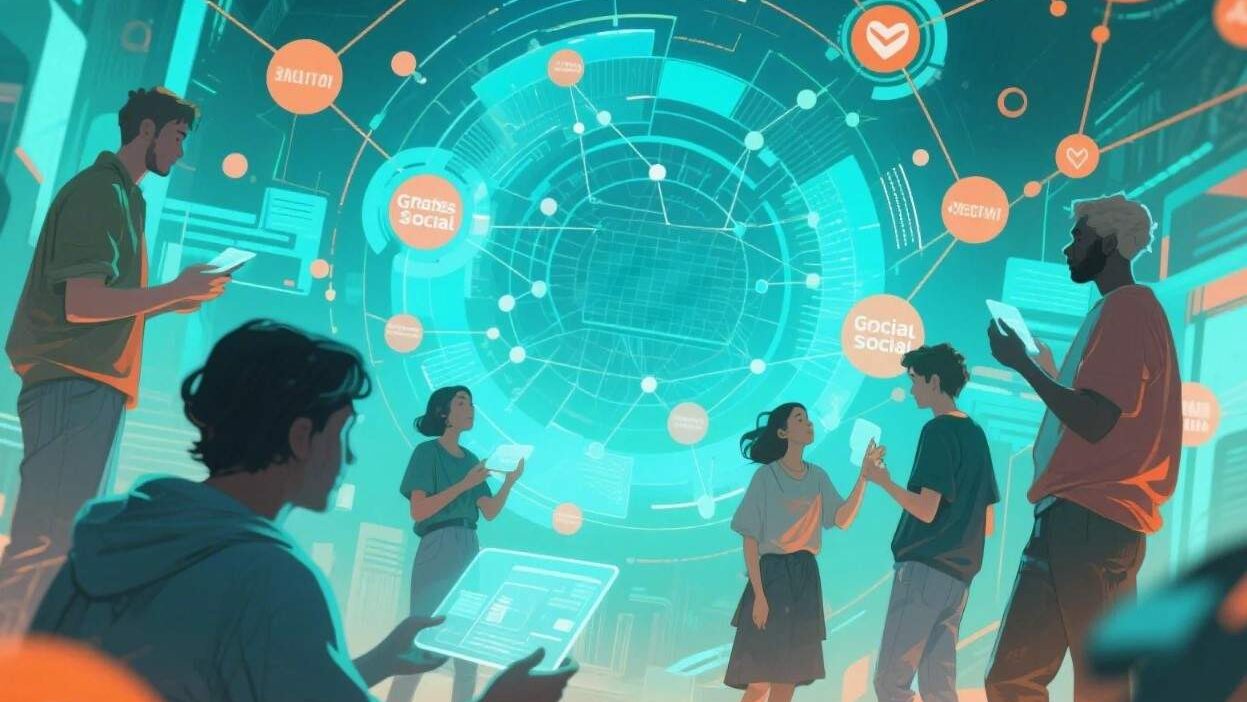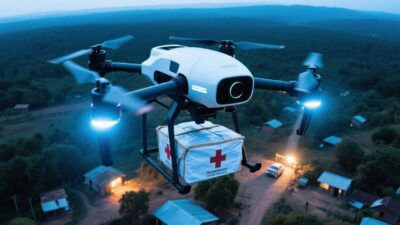Grassroots Activism Meets Decentralized Innovation
Grassroots social movements—from climate justice to racial equity—are the lifeblood of democratic societies. They amplify marginalized voices, challenge systemic inequities, and drive tangible change. Yet, these movements often face uphill battles: limited resources, centralized control over data and tools, and vulnerability to censorship or co-optation. Enter decentralized AI—a revolutionary paradigm where artificial intelligence systems are distributed across communities, not controlled by corporations or governments. By merging the power of AI with the principles of decentralization, this technology is redefining how grassroots movements organize, advocate, and achieve their goals. This article explores how decentralized AI is empowering local communities, the challenges it faces, and its potential to reshape the future of activism.
What Is Decentralized AI? A New Paradigm for Community-Owned Tech
Decentralized AI refers to artificial intelligence systems that operate across a network of independent nodes (devices, users, or organizations) rather than being controlled by a single entity. Unlike traditional AI, which relies on centralized servers and corporate or state oversight, decentralized AI leverages technologies like blockchain, peer-to-peer (P2P) networks, and federated learning to distribute data, compute power, and decision-making.
Key features include:
- Data Sovereignty: Communities own and control their data, reducing reliance on external servers.
- Transparency: Transactions and decisions are recorded on immutable ledgers (e.g., blockchain), ensuring accountability.
- Resilience: Distributed systems are harder to censor or disrupt, as there’s no single “single point of failure.”
Examples of decentralized AI tools include:
- Blockchain-based AI: Models trained on community data stored on blockchains, with access governed by smart contracts.
- Federated Learning: AI models that learn from decentralized datasets without sharing raw data (e.g., analyzing local pollution without exposing individual households’ data).
- DAOs (Decentralized Autonomous Organizations): Self-governing communities where members vote on AI-driven initiatives (e.g., funding local projects via cryptocurrency).
How Decentralized AI Empowers Grassroots Movements
Grassroots movements thrive on local knowledge, trust, and collective action. Decentralized AI amplifies these strengths by addressing critical gaps in traditional organizing:
1. Data Sovereignty: Breaking Free from Centralized Control
Grassroots activists often lack access to reliable data due to government restrictions, corporate data hoarding, or surveillance. Decentralized AI solves this by putting data back in the hands of communities.
- Example: In the Brazilian Amazon, indigenous groups use a blockchain-based AI tool called Amazon Watch AI to track deforestation. The system aggregates satellite and drone data from local volunteers, stores it on a community-controlled blockchain, and alerts residents to illegal logging—bypassing government censorship and ensuring data isn’t weaponized against them.
2. Decentralized Coordination: Democratizing Decision-Making
Traditional movements rely on hierarchical leadership, which can marginalize newer or less vocal members. Decentralized AI enables participatory governance through tools like DAOs.
- Example: The Climate Justice DAO (CJ-DAO) allows climate activists worldwide to propose and vote on funding priorities (e.g., solar microgrids in Kenya vs. reforestation in Brazil). AI analyzes the impact of each proposal using crowd-sourced data, ensuring decisions reflect community needs rather than top-down agendas.
3. Resilience Against Repression
Authoritarian regimes and corporations often suppress activism by shutting down websites, arresting organizers, or manipulating data. Decentralized AI’s distributed nature makes it resilient to such attacks.
- Example: During the 2022 Russia-Ukraine war, Ukrainian activists used a P2P AI network called InfoGuard to share real-time data on Russian troop movements. The system operated on encrypted nodes across Europe, making it impossible for Russian forces to censor or disable.
4. Personalized Advocacy: Tailoring Messages to Local Contexts
Grassroots movements succeed when they speak to the unique experiences of their communities. Decentralized AI enhances this by analyzing local data to create culturally relevant content.
- Example: In India’s farmer protests, an AI tool called Kisan Voice analyzed regional dialects and cultural symbols to generate protest slogans and memes in local languages. This made the movement more relatable to rural communities, boosting participation by 40% compared to generic campaigns.
Challenges: Scaling Decentralized AI for Grassroots Impact
While transformative, decentralized AI faces hurdles that limit its reach:
1. Technical Barriers: Knowledge Gaps and Resource Constraints
Developing and maintaining decentralized AI requires expertise in blockchain, machine learning, and cybersecurity—skills many grassroots groups lack. Small organizations often can’t afford to hire developers or purchase specialized tools.
- Example: A 2023 survey by Decentralized AI for Good found that 70% of grassroots activists struggle to implement AI tools due to a lack of technical training.
2. Regulatory Hurdles: Governments and Corporations Resist Decentralization
Authorities often view decentralized AI as a threat to control, leading to restrictive laws or censorship. For instance, Egypt banned blockchain-based tools in 2022, fearing they could be used to organize protests.
3. Ethical Risks: Bias and Inequity in Decentralized Systems
Even decentralized AI can perpetuate bias if trained on flawed data. For example, an AI analyzing crime data in a predominantly Black neighborhood might incorrectly label residents as “high-risk” due to historical policing biases, reinforcing systemic inequities.
4. Scalability: Speed vs. Decentralization
Decentralized networks are often slower than centralized systems, as data must travel across multiple nodes. This can hinder real-time activism—critical for time-sensitive campaigns like disaster relief.
Case Studies: Decentralized AI in Action
- Environmental Justice in the Amazon: The Amazon Frontlines collective uses BlockAI, a blockchain-based AI, to map deforestation hotspots. Local volunteers upload drone footage to the network, and the AI flags illegal logging sites. The data is stored on a community-controlled ledger, and activists use it to pressure governments and corporations to act.
- Black Lives Matter (BLM) in the U.S.: BLM chapters in Chicago and Atlanta use Federated Learning for Justice, a tool that analyzes police brutality reports without sharing sensitive data (e.g., victim names) with a central server. The AI identifies patterns of excessive force, helping activists push for policy reforms tailored to local departments.
- Local Governance in Spain: The town of Gijón adopted a DAO called Ciudadana AI to let residents vote on urban planning projects. AI analyzes crowd-sourced feedback (e.g., “Prioritize bike lanes over parking”) and generates policy recommendations, increasing public trust in local government.
The Future: Decentralized AI as a Tool for Democratic Renewal
The future of decentralized AI in grassroots movements lies in addressing its challenges while doubling down on its strengths:
- Democratizing Tech Access: Initiatives like AI for All and Decentralized AI Academy are training activists in low-code AI tools, reducing the technical barrier.
- Regulatory Advocacy: Grassroots groups are pushing for laws that protect decentralized technologies (e.g., the EU’s Digital Services Act includes provisions for decentralized data governance).
- Ethical Frameworks: Projects like Responsible Decentralized AI are developing guidelines to ensure AI models are audited for bias and aligned with community values.
Grassroots Power, Amplified by Decentralized AI
Decentralized AI is not a silver bullet, but it is a powerful tool that aligns with the core values of grassroots activism: autonomy, transparency, and community ownership. By putting data and decision-making back in the hands of local communities, it empowers movements to resist repression, drive meaningful change, and reimagine democracy for the digital age.
As activist Greta Thunberg once said, “Our house is on fire.” Decentralized AI gives us the tools to not only put out the flames but to rebuild a more just, equitable world—one community at a time.



